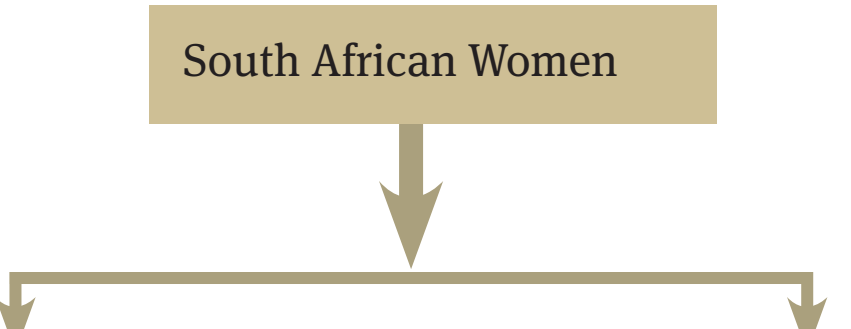Photo AI
Last Updated Sep 24, 2025
Angola: Post-1989 International Relationships Simplified Revision Notes for NSC History
Revision notes with simplified explanations to understand Angola: Post-1989 International Relationships quickly and effectively.
331+ students studying
Angola: Post-1989 International Relationships
Introduction
Angola's civil unrest, closely linked with Cold War ideologies, underwent significant transformations due to superpower involvement. Understanding these dynamics provides a foundation for examining post-1989 international relationships. Following 1989, the environment shifted dramatically with geopolitical changes like the disintegration of the USSR, leading to new alliances and domestic developments.
Timeline: Angola's Civil War extended from 1975 to 2002, demonstrating its duration and intricacy.
Angola's Independence Journey
- 1975 Independence: Attained from Portugal after extended anticolonial efforts.
- Key Figures: Leaders such as Agostinho Neto played vital roles in securing independence.
- Portuguese Withdrawal: Stemmed from economic decline and widespread colonial conflicts.
Cold War Alliances
- Strategic Partnerships: Alliances with both the USSR and USA were influenced by natural resources.
- Resource Leverage: The roles of oil and diamonds were pivotal in shaping global strategies.
Angola's resource-centric alliances were significant in Cold War strategies.
Angolan Political Entities
MPLA (Popular Movement for the Liberation of Angola)
- Ideology: Marxist-Leninist, supported by the USSR.
- Leader: Agostinho Neto
UNITA (National Union for the Total Independence of Angola)
- Anti-communist: Supported by the USA.
- Leader: Jonas Savimbi
MPLA and UNITA shaped Angola's internal and international strategies.
Post-1989 Geopolitical Shift
- The collapse of the USSR in 1989 concluded numerous proxy wars.
- Proxy Battles: Within Angola, the USSR supported MPLA, whereas the USA backed UNITA.
Regional Diplomacy: Angola concentrated on settling conflicts peacefully within African countries.
Transition from Proxy Battleground to Regional Player
- Established itself as a regional leader in Africa, promoting peacekeeping efforts.
- Adaptation in the post-Cold War era involved enhancing local resources and alliances.
Shift in Government and Ideological Landscape
- Transitioned from ideological alignments to non-aligned international relations.
External Interventions
- Cuba: Provided military support to MPLA, notably in the Battle of Cuito Cuanavale.
- South Africa: Assisted UNITA, altering conflict dynamics.
Cuban and South African roles were crucial in Angola's conflicts.
Ideological Battles
- MPLA vs. UNITA: Represented broader Cold War conflicts.
- Campaigns: Influenced perspectives on communism versus capitalism.
Continuation of Civil War Post-1989
- Ideological to Power-Driven Conflict: Focused on control over resources such as oil and diamonds.
- Impact on Citizens: Infrastructure was centred around resource-rich regions, resulting in disparities.
International and Regional Diplomacy
- Bicesse Accords (1991): Introduced a ceasefire and democratic measures.
- Lusaka Protocol (1994): Aimed for peace through unity, challenged by mutual distrust.
Treaty Outcomes: Facilitated the return of control to Angolan authorities, encouraging local resolution efforts.
Changing Economic Landscape
Role of Economic Sanctions
- Sanctions: Imposed to encourage political and economic reform.
Impacts
- Diminished GDP and disrupted trade.
- Adaptations involved diversification and covert oil trades.
Diplomatic Efforts Post-2002
Foreign Policy Realignments
- Focused on economic diplomacy and establishing diverse international alliances.
- Developed strategic partnerships with Brazil, South Africa, and Portugal.

Economic Partnerships:
- Utilised oil wealth to establish economic connections; notably with China and USA.
Regional Influence
- Prominent roles within the African Union and SADC.
Bilateral Relationships
Angola-United States Relationship
Key Areas of Focus
- Trade: Designated as a major oil provider to the USA.
- Military Collaborations: Enhanced through joint military training exercises.
- Challenges and Successes: Ongoing political challenges and successful cooperative initiatives highlighted.
Angola-China Relationship
Growth
- Propelled by shared economic interests, notably infrastructure investments.
Diagrammatic interactions help in understanding Angola's intricate bilateral relationships.
Role of International Organisations
- UN and NGOs: Key in humanitarian assistance and development initiatives.

Conflict Resolution and Peacekeeping Contributions
- UNAVEM missions facilitated ceasefires and supported electoral processes.
UNAVEM III's contribution to peaceful elections represented a significant stability achievement.
Concluding Reflections on Peace and Development
- Post-conflict, Angola embraced economic diplomacy and alliances.
- Utilisation of oil in global contexts elevated its international stature.
The progression from Cold War ideological conflicts to economic and political rehabilitation exemplifies Angola's journey towards stability and global recognition.
500K+ Students Use These Powerful Tools to Master Angola: Post-1989 International Relationships For their NSC Exams.
Enhance your understanding with flashcards, quizzes, and exams—designed to help you grasp key concepts, reinforce learning, and master any topic with confidence!
260 flashcards
Flashcards on Angola: Post-1989 International Relationships
Revise key concepts with interactive flashcards.
Try History Flashcards39 quizzes
Quizzes on Angola: Post-1989 International Relationships
Test your knowledge with fun and engaging quizzes.
Try History Quizzes37 questions
Exam questions on Angola: Post-1989 International Relationships
Boost your confidence with real exam questions.
Try History Questions5 exams created
Exam Builder on Angola: Post-1989 International Relationships
Create custom exams across topics for better practice!
Try History exam builder90 papers
Past Papers on Angola: Post-1989 International Relationships
Practice past papers to reinforce exam experience.
Try History Past PapersOther Revision Notes related to Angola: Post-1989 International Relationships you should explore
Discover More Revision Notes Related to Angola: Post-1989 International Relationships to Deepen Your Understanding and Improve Your Mastery
